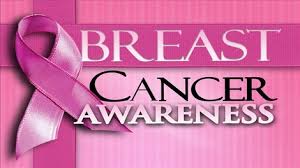
A notable “for instance.” The city of Chicago has “gone pink,” for October, including lights, banners and flags along its skyline, to help publicize the goals of the annual Breast Cancer Awareness campaign. Those goals include early diagnosis, treatment and research into the devastating woman’s disease. More than 200 of Chicago’s buildings, landmarks and businesses were encouraged to join the effort. The city’s contribution to the Pink Ribbon campaign will be prolonged with a 5K run in November.
Chicago isn’t the only entity doing extraordinary things to share in an effort well known to the American public. On the list are Times Square, ABC News, Blue Cross-Blue Shield, Lexus, Kroger, Macy’s, Go Daddy, the NFL and who knows how many others whose presence in American life is easily identified.
Shared Interest allows these entities to participate in a “higher order purpose” and to align itself with others around a mutual cause, proponents say. They enjoy a “human equity” fallout, proving that sometimes-aloof organizations do have a heart.
The movement has its critics. Some say that the early intervention message gets lost in the hype, that it offsets the important goal of getting more money into research that might find cures for breast cancer. Some of the companies that have rallied to the pink cause even have products and policies that counter the effort – for instance, those that pour carcinogens into the ecosystem.
Breast cancer is not the only campaign that spawns Shared Interest. The ALS Ice Bucket Challenge raised more than $100 million to fight that debilitating disease. It stood out as the poster child for awareness that leads to action.
Last month was Hunger Action Month, with the focus on one in six Americans who go to bed at night hungry. That effort raised millions in money and resources and considerably improved awareness.
The proof of the overall positive result of Shared Interest lies in the increased knowledge the public gains of the very real needs for help in combating some of the most serious problems Americans face. For instance, ask the family of one woman who took the pink ribbon campaign seriously – whatever the source of her information – and got into treatment for her own disease early. Those family members most certainly would support the joint effort to get out the word.